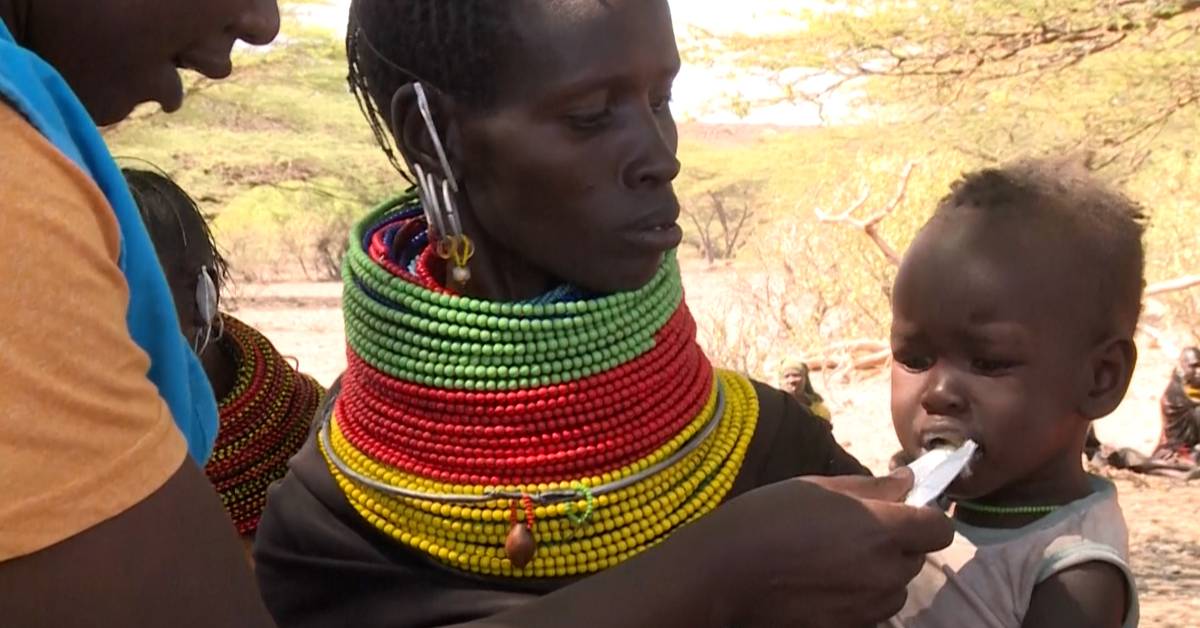Carcasses of animals that have not survived the drought are scattered in Purapul.
In Kenya alone, over 1.5 million livestock have died, leaving families without meat, milk or opportunities to barter.
The worst drought in 40 years has meant that at least 18 million people in the Horn of Africa are now living with severe hunger.
The most severely affected areas are on the brink of a famine disaster.
Wear to survive
Loka Metir picks small bitter berries called edung from a bush.
She knows they will make the children sick.
But she has nothing else to give them.
- We can't farm and all our animals have died in the drought.
We're just waiting to starve to death.
These berries are our only way to survive, she explains.
73-year-old Iripiyo Apothya has seen her goats die one by one.
In the past, droughts came at intervals of many years, and both animals and people could recover when the rains came.
Now it hasn't rained properly for three years.
- The pasture dries up completely and when the livestock die, so do people, because we depend on them.
Sunflower oil and cereals
On top of the drought, Russia's invasion of Ukraine has driven up the prices of food and fuel.
Ukraine is one of the world's largest exporters of sunflower oil and grain - commodities that have been stuck in the port of Odessa for months.
Ukraine has also received much of the attention over the past six months, as well as a large portion of the humanitarian aid distributed.
When Samantha Power, head of the US aid agency USAID, recently visited Kenya, she stressed the importance of resuming exports across the Black Sea, which has now been done.
- By blocking Ukraine's grain exports and restricting trade in Russian fertilizers, Putin's actions have caused pain to the people of Kenya and other countries, she said.
Nutritious peanut butter
The United Nations children's fund UNICEF has warned that higher prices and shortages of vegetable oil could affect access to a nutritious peanut cream used to prevent hunger.
Money to buy in and deliver the increasingly expensive product is missing.
- If we run out of it, it will lead to more deaths, very soon.
It is life-saving, says James Jarso, at the organization World Vision.

